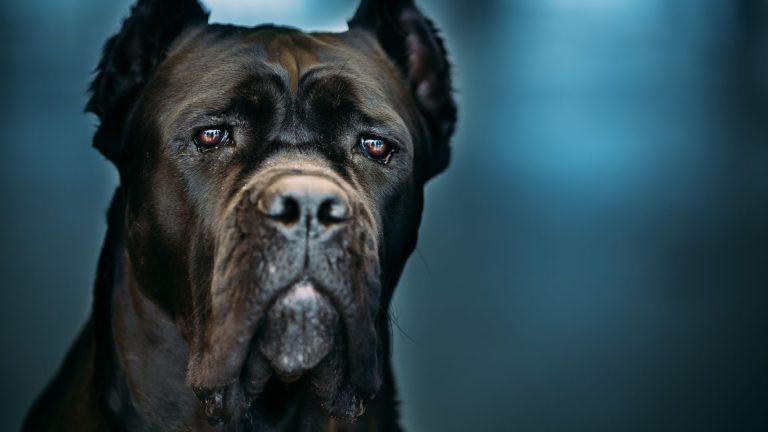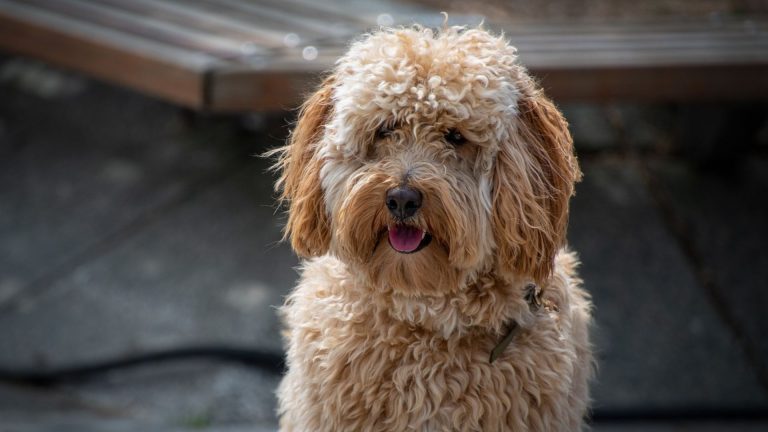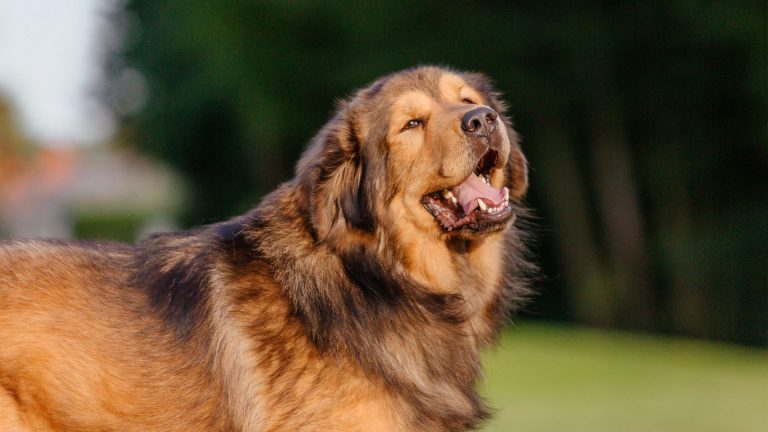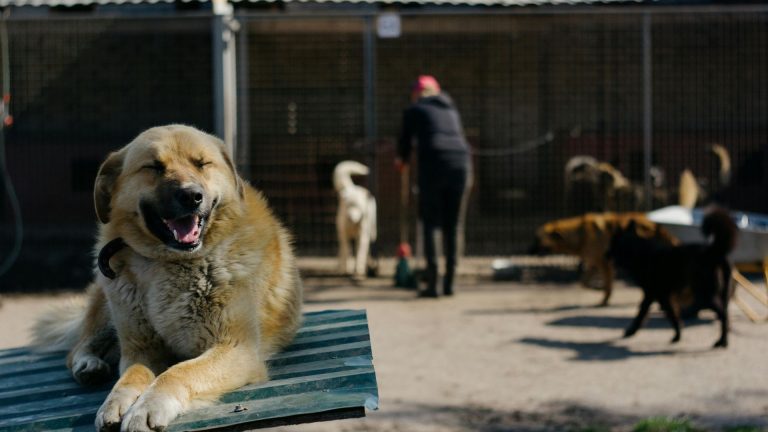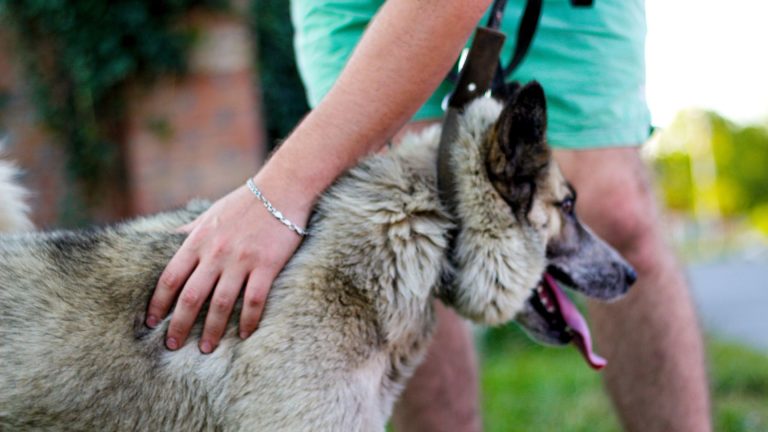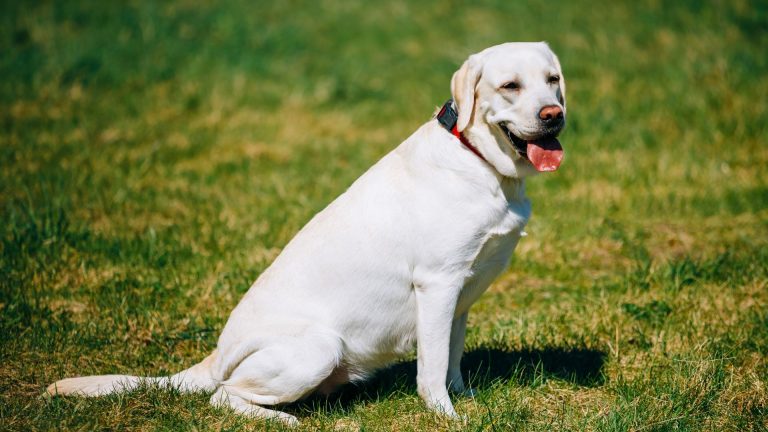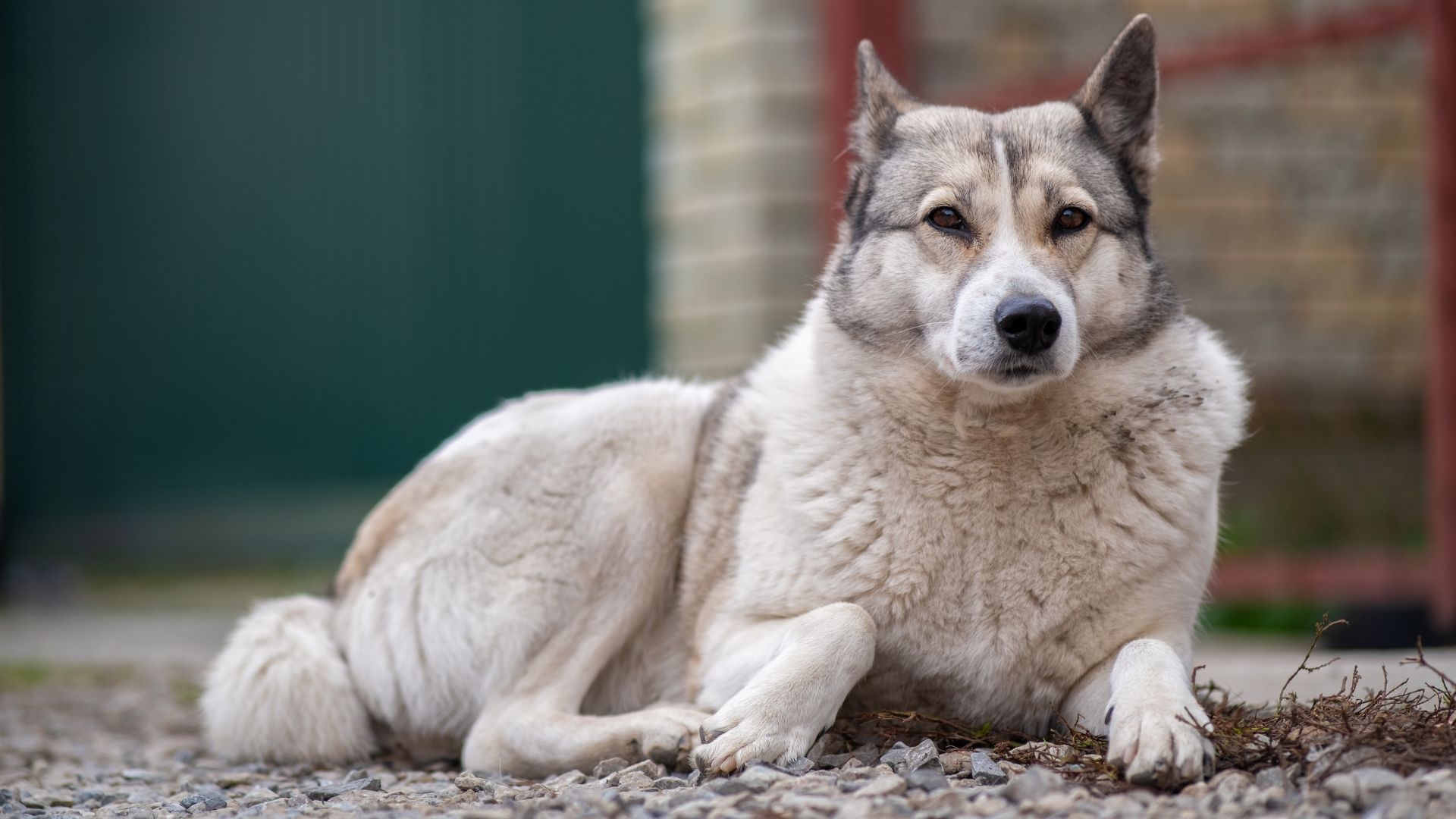
Contents
Dogs come in all shapes and sizes, but some breeds are more prone to packing on the pounds. These “fat dog breeds” often gain weight due to their genetic makeup, eating habits, and lifestyle. Understanding the specific tendencies of these breeds is crucial for maintaining their health and happiness.
Each breed has unique characteristics that can affect their weight. Some dogs are naturally more sedentary, while others have slower metabolisms. Knowing these traits helps owners provide the right diet and exercise to keep their pets in optimal condition.
Despite the health challenges, chubby dogs have a special charm. Their round faces and plump bodies make them irresistibly cute. Many owners find joy in their cuddly appearance and loving nature. However, it’s important to balance their adorable looks with a focus on their overall well-being.
| # | Breed | Description | Weight Gain Reasons | Health Concerns | Care Tips |
|---|---|---|---|---|---|
| 1 | English Bulldog | Muscular build, wrinkled face, low, heavyset body | Low energy, slower metabolism, overfeeding | Joint problems, respiratory issues, heart conditions | Balanced diet, regular exercise, vet check-ups |
| 2 | Beagle | Sturdy build, long ears, keen sense of smell | Strong food drive, less active with age | Overeating, scavenging, sneaking snacks | Balanced diet, regular exercise, mental stimulation |
| 3 | Pug | Wrinkled face, short muzzle, large eyes | Low energy, love for food, genetic predisposition | Obesity, respiratory issues, joint problems | Balanced diet, regular exercise, puzzle toys |
| 4 | Dachshund | Long body, short legs, distinctive appearance | Hearty appetite, love for treats | Intervertebral disc disease, joint problems | Portion control, balanced diet, regular exercise |
| 5 | Labrador Retriever | Strong, athletic build, broad chest | Hearty appetite, love for food | Joint problems, heart disease, diabetes | High-quality diet, regular exercise, vet check-ups |
| 6 | Cocker Spaniel | Sturdy build, long ears, silky coat | Love for food, tendency to overeat | Obesity, joint problems, heart disease | Balanced diet, regular exercise, vet check-ups |
| 7 | Basset Hound | Long body, short legs, droopy ears | Low energy, love for food | Joint and back issues, respiratory problems | Balanced diet, regular exercise, weight monitoring |
| 8 | Boxer | Muscular build, strong jaws, short coat | Love for food, decreased activity with age | Joint problems, heart disease, obesity | Balanced diet, regular exercise, mental stimulation |
| 9 | Chihuahua | Small size, large eyes, compact build | Low activity, love for food | Obesity, joint problems, heart disease | Portion control, regular exercise, vet check-ups |
| 10 | Rottweiler | Robust build, muscular body, large size | Hearty appetite, love for food | Joint problems, heart disease, diabetes | Balanced diet, regular exercise, weight monitoring |
1. English Bulldog
English Bulldogs are known for their muscular build, wrinkled face, and distinctive pushed-in nose. They are medium-sized dogs with a sturdy frame and a low, heavyset body. Bulldogs are gentle, loyal, and affectionate, making them wonderful companions.
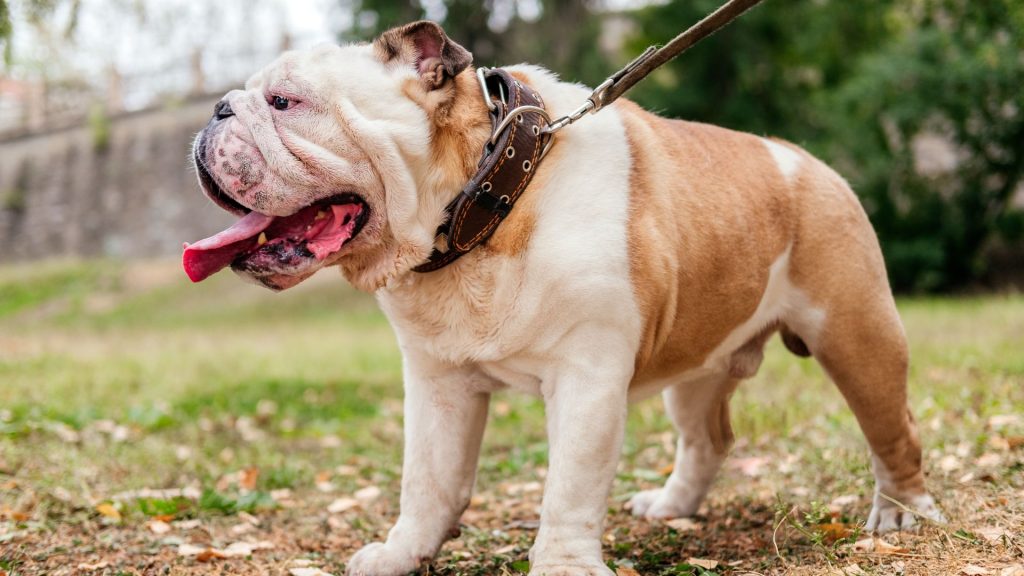
Common Reasons for Weight Gain
English Bulldogs have a natural tendency to gain weight. Their low energy levels and love for lounging contribute to this issue. Additionally, Bulldogs often have a slower metabolism compared to other breeds. Overfeeding and lack of exercise further exacerbate their weight problems.
Health Implications and Care Tips
Excess weight in English Bulldogs can lead to several health issues. They are prone to joint problems, respiratory difficulties, and heart conditions. Maintaining a healthy weight is essential to prevent these complications.
To manage their weight, ensure they have a balanced diet with appropriate portion sizes. Regular exercise, even short daily walks, can help keep them active. Avoid giving them high-calorie treats and monitor their food intake closely. Regular vet check-ups will help catch any health issues early and keep your Bulldog healthy and happy.
2. Beagle
Beagles are small to medium-sized dogs with a sturdy, compact build. They have a short coat, long ears, and a keen sense of smell. Typically, Beagles are active and energetic, but they can easily gain weight if their diet and exercise routines are not properly managed.
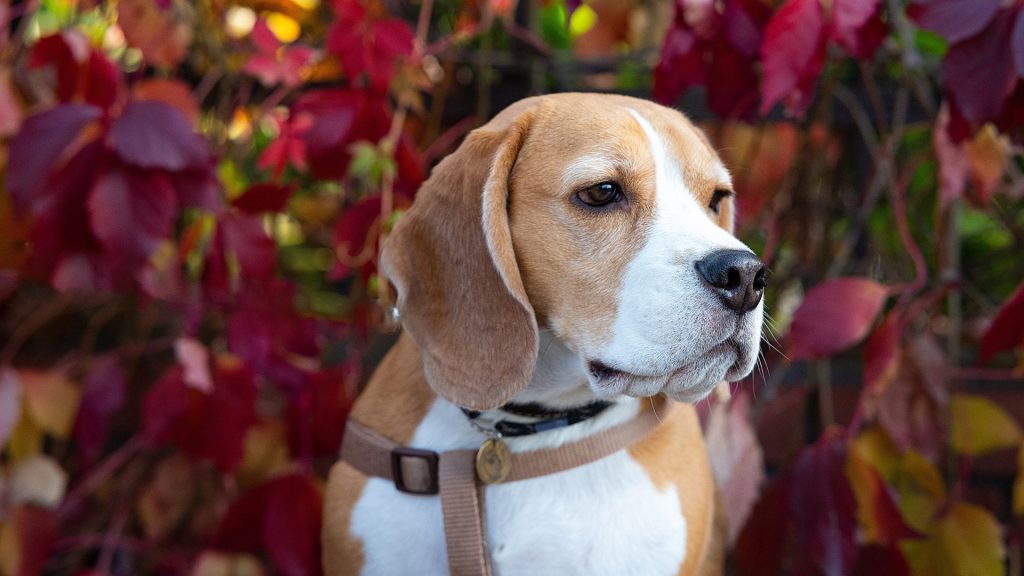
Factors Contributing to Their Propensity for Weight Gain
Beagles have a strong food drive, often leading them to overeat if given the chance. Their natural curiosity and hunting instincts can make them prone to scavenging and sneaking extra snacks. Additionally, Beagles can be less active as they age, which contributes to weight gain.
Exercise and Diet Recommendations
To maintain a healthy weight, Beagles need a well-balanced diet and regular exercise. Feed them high-quality dog food in controlled portions to avoid overfeeding. Avoid giving them table scraps and high-calorie treats.
Beagles require plenty of physical activity to stay fit. Aim for at least 30-60 minutes of exercise daily, which can include walks, playtime, and engaging activities like fetch or agility training. Mental stimulation is also important to keep them from becoming bored and resorting to food for entertainment.
Consistent exercise and a proper diet will help keep your Beagle healthy, happy, and at an ideal weight.
3. Pug
Pugs are small dogs with a distinctive appearance, featuring a wrinkled face, short muzzle, and large, expressive eyes. They have a sturdy, compact body with a curled tail. Their short, smooth coat comes in various colors, including fawn, black, and silver.
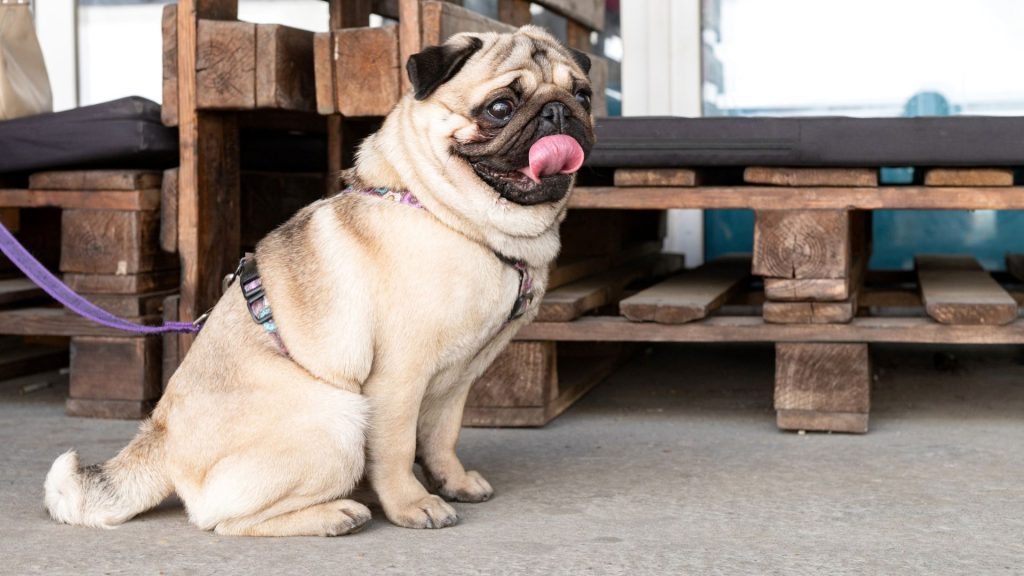
Reasons for Weight Issues in Pugs
Pugs are prone to weight gain for several reasons. They have a low energy level and tend to be less active, which can lead to weight problems if not managed properly. Their love for food and tendency to overeat further contribute to this issue. Additionally, Pugs have a genetic predisposition to obesity, making weight management even more challenging.
Tips for Maintaining a Healthy Weight
To keep your Pug at a healthy weight, focus on providing a balanced diet with appropriate portion sizes. Avoid feeding them table scraps and high-calorie treats. Choose high-quality dog food that meets their nutritional needs without excess calories.
Regular exercise is crucial for Pugs, despite their low energy levels. Engage them in short, daily walks and play sessions to keep them active. Puzzle toys and interactive games can also help stimulate their minds and encourage movement.
Monitor their weight regularly and consult your vet for personalized advice on diet and exercise. Regular vet check-ups will help identify any health issues early and ensure your Pug remains healthy and happy.
4. Dachshund
Dachshunds are known for their long bodies and short legs, giving them a distinctive and charming appearance. This unique body structure, however, makes them particularly susceptible to weight-related issues. Extra weight puts additional strain on their spine and joints, increasing the risk of intervertebral disc disease (IVDD) and other musculoskeletal problems.

Common Dietary Habits
Dachshunds have a hearty appetite and can easily overeat if not monitored. They often enjoy treats and human food, which can quickly add up in calories. Portion control is essential to prevent overeating and manage their weight effectively.
Health Concerns Related to Obesity
Obesity in Dachshunds can lead to serious health problems. The most significant concern is the increased risk of IVDD, which can cause severe pain, mobility issues, and even paralysis. Overweight Dachshunds are also more prone to joint problems, diabetes, heart disease, and respiratory issues.
Tips for Maintaining a Healthy Weight
To keep your Dachshund at a healthy weight, focus on a balanced diet with controlled portions. Feed them high-quality dog food that meets their nutritional needs without excess calories. Limit treats and avoid feeding them table scraps.
Regular exercise is crucial for Dachshunds, despite their short legs. Daily walks, playtime, and interactive toys can help keep them active and maintain a healthy weight. Avoid activities that put too much strain on their spine, like jumping from heights.
Regular vet check-ups will help monitor their weight and overall health, ensuring any issues are addressed early. By maintaining a healthy weight, your Dachshund can lead a happy, active, and pain-free life.
5. Labrador Retriever
Labrador Retrievers are one of the most popular dog breeds worldwide, known for their friendly nature, intelligence, and versatility. They have a strong, athletic build with a broad chest, muscular legs, and a dense, water-resistant coat. Labs are medium to large-sized dogs, typically weighing between 55 to 80 pounds.
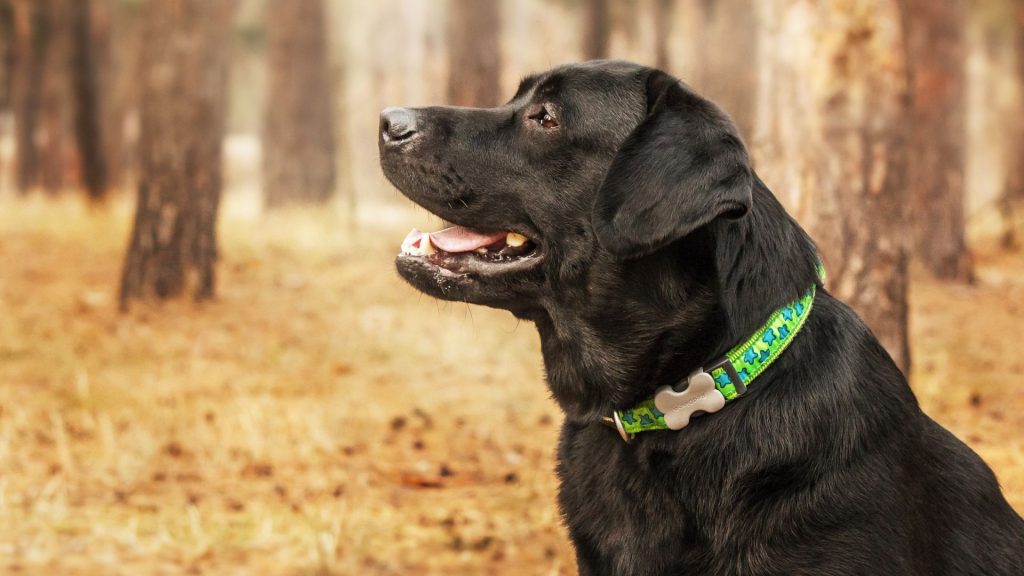
Dietary Needs and Exercise Requirements
Labradors have a hearty appetite and can easily overeat if not monitored. Their dietary needs should include high-quality dog food rich in protein, healthy fats, and essential nutrients. Portion control is essential to prevent overfeeding and subsequent weight gain. Labs thrive on regular meals rather than free-feeding to help manage their weight.
Exercise is vital for Labradors due to their high energy levels and athletic nature. They require at least 60 minutes of physical activity daily, including walks, runs, swimming, and interactive play. Mental stimulation through training sessions, puzzle toys, and fetch games is also important to keep them engaged and prevent boredom.
Managing Weight Gain Effectively
To effectively manage weight gain in Labradors, maintain a balanced diet with appropriate portion sizes and limit treats. Opt for healthy, low-calorie treats and avoid giving them table scraps. Regular exercise is crucial, so ensure your Lab gets sufficient physical activity every day.
Monitor their weight regularly and consult your vet for personalized dietary and exercise recommendations. Regular vet check-ups will help catch any health issues early and adjust their care plan as needed.
By managing their diet and ensuring they get enough exercise, you can keep your Labrador Retriever healthy, happy, and at an optimal weight.
6. Cocker Spaniel
Cocker Spaniels are medium-sized dogs with a sturdy and compact build. They typically weigh between 20 to 30 pounds, with females usually being slightly smaller than males. Cocker Spaniels have a silky, flowing coat and long ears, giving them a distinctive and elegant appearance.
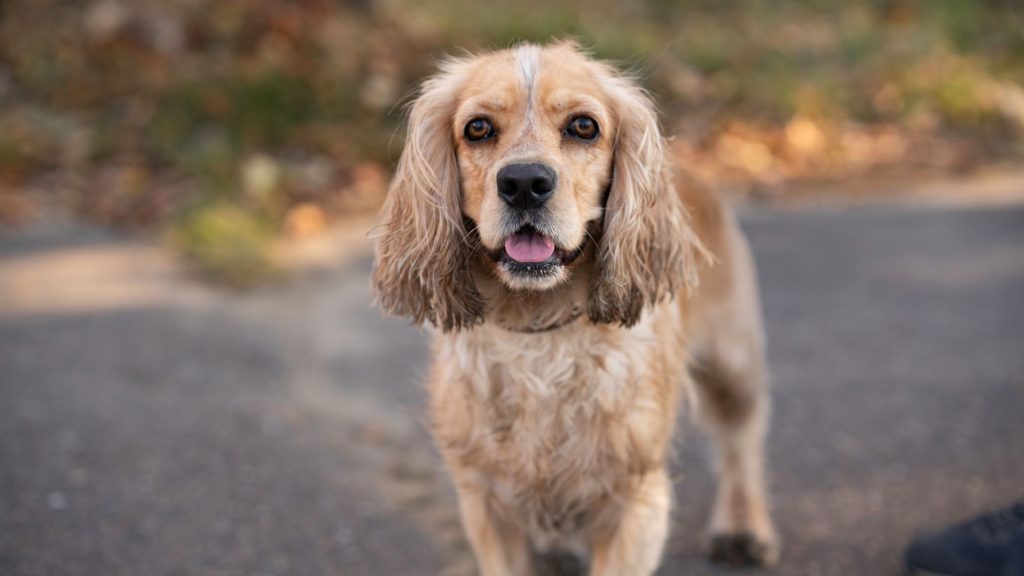
Reasons for Potential Weight Gain
Cocker Spaniels are prone to weight gain due to several factors. Their love for food and tendency to overeat can quickly lead to obesity if not managed properly. Additionally, they can be less active if not regularly engaged in physical activities. Age, genetics, and certain health conditions can also contribute to weight gain in Cocker Spaniels.
Strategies for Keeping Them Fit and Healthy
To keep your Cocker Spaniel fit and healthy, focus on providing a balanced diet with appropriate portion sizes. Choose high-quality dog food that meets their nutritional needs without adding unnecessary calories. Be mindful of treats, opting for low-calorie options, and avoid feeding them table scraps.
Regular exercise is essential for maintaining a healthy weight. Ensure your Cocker Spaniel gets at least 30 to 45 minutes of physical activity daily, including walks, playtime, and interactive games. Engage them in activities that stimulate both their body and mind, such as fetch, agility training, and puzzle toys.
Routine vet check-ups are crucial to monitor their weight and overall health. Your vet can provide personalized advice on diet and exercise tailored to your dog’s specific needs. By maintaining a balanced diet, regular exercise, and monitoring their health, you can help your Cocker Spaniel stay fit, healthy, and happy.
7. Basset Hound
Basset Hounds are easily recognizable by their long bodies, short legs, and droopy ears. They have a heavy-boned structure, giving them a solid and sturdy appearance. Their low-set frame and distinctive loose skin, especially around the face and neck, contribute to their unique and endearing look.
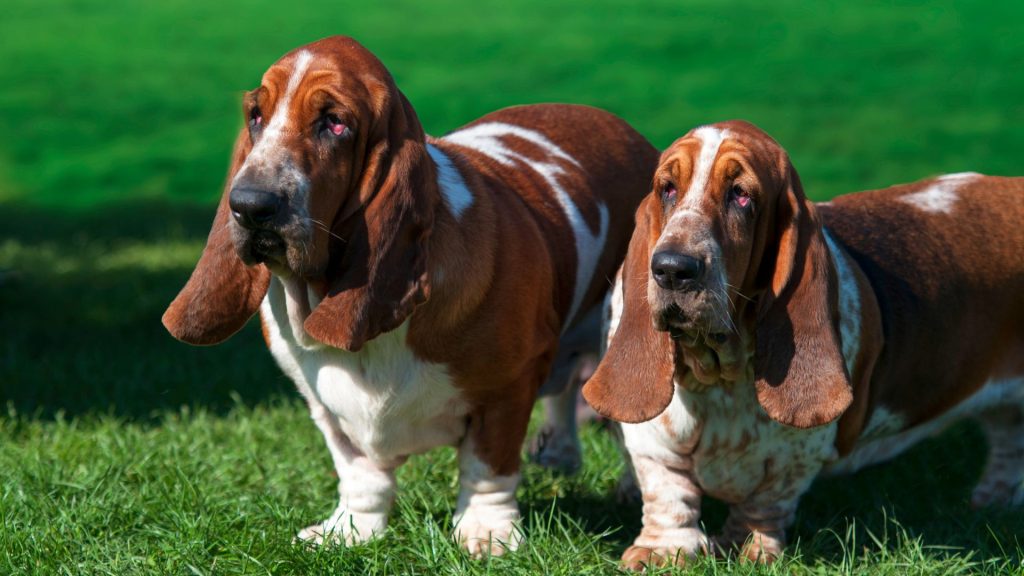
Common Weight-Related Issues
Basset Hounds are prone to weight gain, which can lead to several health problems. Their short legs and long bodies make them susceptible to joint and back issues, and excess weight can exacerbate these conditions. Obesity in Basset Hounds can also lead to respiratory problems, heart disease, and a decreased overall quality of life.
Care Tips to Prevent Obesity
To prevent obesity in Basset Hounds, it is essential to manage their diet and ensure they get regular exercise. Here are some tips:
- Balanced Diet: Feed your Basset Hound high-quality dog food that provides balanced nutrition. Be mindful of portion sizes to avoid overfeeding. Consult your vet for recommendations on the appropriate amount of food based on your dog’s age, weight, and activity level.
- Healthy Treats: Limit treats and avoid giving them table scraps. Opt for low-calorie, healthy treats to reward good behavior without adding unnecessary calories.
- Regular Exercise: Basset Hounds need daily exercise to stay fit and healthy. Aim for at least 30 minutes of moderate exercise, such as walks and playtime. Engage them in activities that encourage movement but avoid strenuous exercises that could strain their joints.
- Weight Monitoring: Regularly monitor your Basset Hound’s weight and body condition. If you notice any significant changes, consult your vet for advice on adjusting their diet and exercise routine.
- Veterinary Check-ups: Schedule regular vet check-ups to monitor your dog’s overall health and catch any potential issues early. Your vet can provide guidance on maintaining a healthy weight and addressing any specific health concerns.
By following these care tips, you can help prevent obesity in your Basset Hound, ensuring they lead a healthy, active, and happy life.
8. Boxer
Boxers are medium to large-sized dogs known for their muscular build, strong jaws, and expressive faces. They have a short, sleek coat and a distinctive square-shaped head with a pronounced muzzle. Boxers are athletic and energetic, with a powerful and agile physique that reflects their playful and active nature.
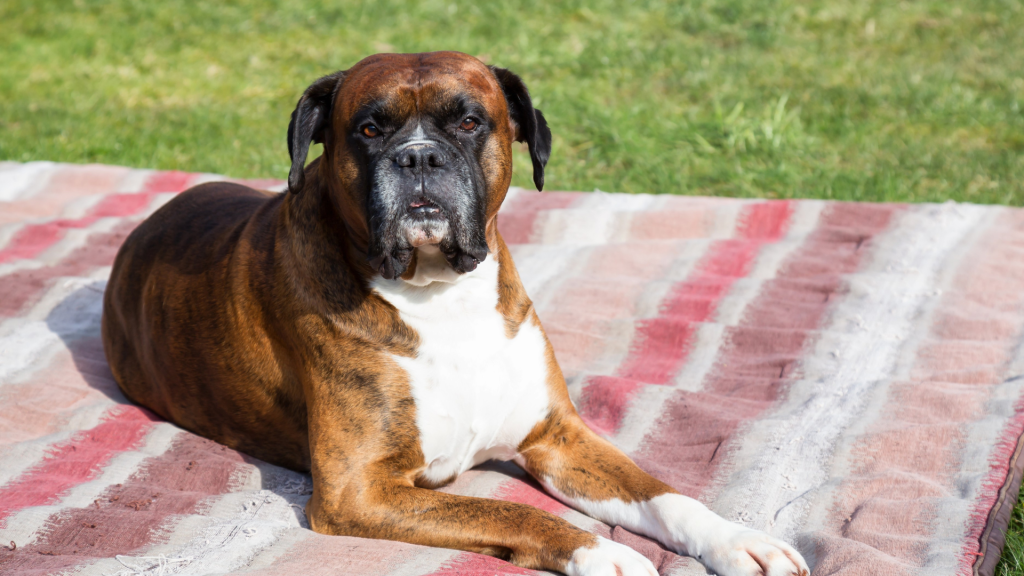
Weight Management Challenges
Boxers are prone to weight gain, especially as they age and their activity levels decrease. Their high energy levels require regular exercise, and without sufficient physical activity, they can easily become overweight. Additionally, Boxers have a tendency to overeat if their diet is not properly managed. Their robust appetite and love for food make portion control and dietary discipline crucial.
Health and Wellness Tips
To maintain a healthy weight and ensure the overall well-being of your Boxer, follow these health and wellness tips:
- Balanced Diet: Provide a high-quality, balanced diet tailored to their age, weight, and activity level. Avoid overfeeding and monitor their calorie intake to prevent weight gain. Consult your vet for specific dietary recommendations.
- Regular Exercise: Ensure your Boxer gets plenty of daily exercise to burn off excess energy and maintain a healthy weight. Aim for at least 60 minutes of physical activity each day, including walks, runs, and playtime. Engage them in activities like fetch, agility training, and interactive games to keep them physically and mentally stimulated.
- Portion Control: Measure their food portions accurately to avoid overfeeding. Stick to a consistent feeding schedule and avoid giving them table scraps or high-calorie treats. Opt for healthy, low-calorie treats for rewards.
- Mental Stimulation: Boxers are intelligent dogs that require mental stimulation to stay happy and prevent boredom. Provide puzzle toys, training sessions, and interactive play to keep their minds engaged.
- Regular Vet Check-ups: Schedule regular veterinary check-ups to monitor your Boxer’s weight and overall health. Your vet can provide guidance on diet, exercise, and any specific health concerns that may arise.
- Weight Monitoring: Regularly check your Boxer’s weight and body condition. If you notice any significant changes, consult your vet to adjust their diet and exercise routine accordingly.
9. Chihuahua
Chihuahuas are the smallest dog breed, typically weighing between 2 to 6 pounds. Despite their small size, they have a significant tendency to gain weight. Due to their petite frame, even a small amount of excess weight can quickly lead to obesity. Their low activity levels and love for food make weight management a crucial aspect of their care.
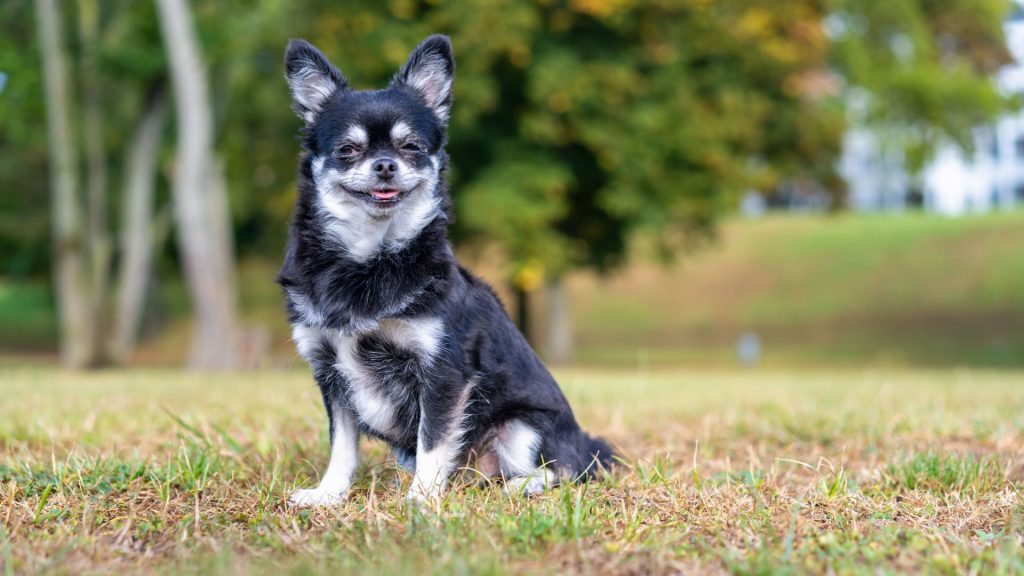
Nutritional Needs and Exercise
Chihuahuas have specific nutritional needs that must be met to maintain their health. Feed them high-quality, nutrient-dense dog food in appropriate portions based on their age, weight, and activity level. Avoid overfeeding and be mindful of the calorie content in their treats.
Exercise is essential for keeping Chihuahuas fit and healthy. Despite their small size, they need regular physical activity to burn off excess energy and prevent weight gain. Aim for at least 20 to 30 minutes of exercise daily, including short walks, playtime, and interactive games. Mental stimulation is also important, so consider using puzzle toys and training exercises to keep their minds engaged.
Preventing Obesity in Small Breeds
To prevent obesity in Chihuahuas and other small breeds, follow these guidelines:
- Portion Control: Measure their food accurately to ensure they receive the correct portion size. Avoid free-feeding and stick to a regular feeding schedule to prevent overeating.
- Healthy Treats: Choose low-calorie, nutritious treats and limit the number of treats given. Avoid feeding them table scraps, as human food can be high in calories and unhealthy for dogs.
- Regular Exercise: Ensure your Chihuahua gets daily exercise to maintain a healthy weight. Engage them in activities that encourage movement, such as short walks, fetch, and interactive play.
- Monitor Weight: Regularly check your Chihuahua’s weight and body condition. Look for any signs of weight gain and adjust their diet and exercise routine as needed.
- Veterinary Care: Schedule regular vet check-ups to monitor their weight and overall health. Your vet can provide personalized advice on diet and exercise tailored to your Chihuahua’s specific needs.
By following these tips, you can help prevent obesity in your Chihuahua, ensuring they lead a healthy, active, and happy life.
10. Rottweiler
Rottweilers are large, powerful dogs with a robust and muscular build. They typically weigh between 80 to 135 pounds, with males being larger than females. Due to their substantial size, managing their weight is crucial to prevent obesity, which can lead to severe health issues like joint problems, heart disease, and diabetes.
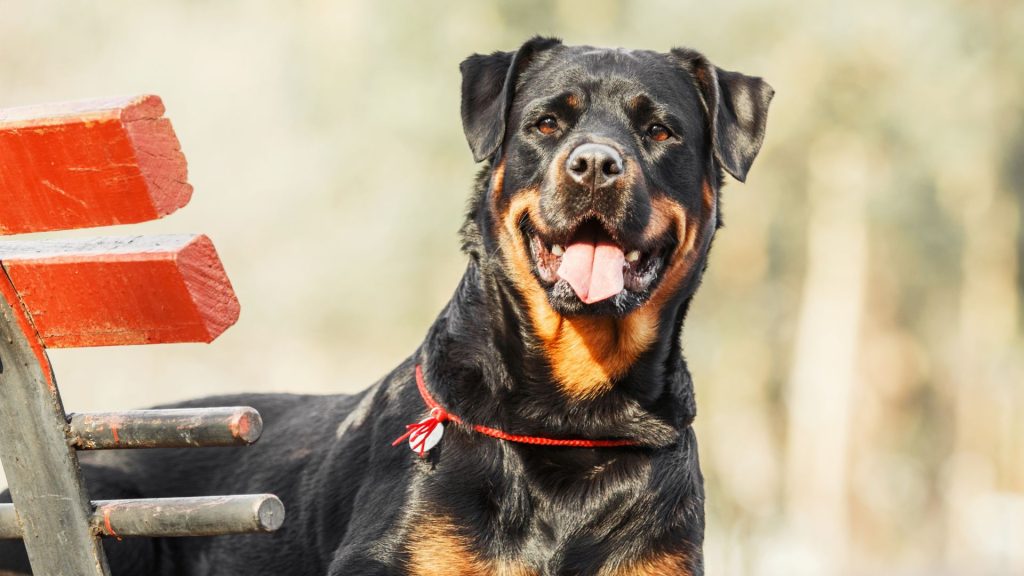
Diet and Activity Recommendations
To maintain a healthy weight, Rottweilers need a balanced diet and regular exercise. Here are some key recommendations:
- Balanced Diet: Provide high-quality dog food that meets their nutritional needs. Focus on a diet rich in protein, healthy fats, and essential vitamins and minerals. Portion control is vital to prevent overfeeding. Avoid giving them table scraps and high-calorie treats.
- Regular Exercise: Rottweilers are active and energetic dogs that require at least 60 to 90 minutes of exercise daily. This can include walks, runs, and playtime. Engage them in activities like fetch, agility training, and obedience exercises to keep them physically and mentally stimulated.
- Avoid Overfeeding: Monitor their food intake carefully. Stick to a regular feeding schedule and measure their portions accurately. Limit the number of treats and opt for healthy, low-calorie options.
Keeping Them Healthy and Fit
To ensure your Rottweiler remains healthy and fit, follow these tips:
- Routine Vet Check-ups: Schedule regular veterinary visits to monitor their weight and overall health. Your vet can provide personalized advice on diet and exercise tailored to your Rottweiler’s needs.
- Weight Monitoring: Regularly check your Rottweiler’s weight and body condition. If you notice any significant changes, consult your vet to adjust their diet and exercise routine accordingly.
- Joint Health: Given their large size, Rottweilers are prone to joint issues. Provide joint supplements if recommended by your vet, and ensure they get appropriate exercise to keep their joints healthy without overstraining them.
- Mental Stimulation: Keep your Rottweiler mentally engaged with training sessions, puzzle toys, and interactive games. Mental stimulation helps prevent boredom, which can lead to overeating and weight gain.
- Hydration: Ensure your Rottweiler has access to fresh water at all times, especially during and after exercise, to keep them hydrated and support their overall health.
By maintaining a balanced diet, providing regular exercise, and monitoring their health, you can keep your Rottweiler fit, healthy, and happy.
General Tips for Managing Your Dog’s Weight
Importance of Regular Vet Check-ups
Regular veterinary check-ups are crucial for managing your dog’s weight. Vets can provide professional guidance on diet, exercise, and overall health. They can detect early signs of weight-related issues and offer personalized advice to keep your dog healthy. Schedule check-ups at least once a year, or more frequently if your dog has weight concerns.
Balanced Diet and Portion Control
Feeding your dog a balanced diet is essential for maintaining a healthy weight. Choose high-quality dog food that meets their nutritional needs. Pay attention to portion sizes to avoid overfeeding. Follow feeding guidelines based on your dog’s age, size, and activity level. Avoid giving table scraps and limit treats, opting for low-calorie, healthy options.
Regular Exercise and Playtime
Regular exercise is vital for preventing weight gain and keeping your dog fit. Ensure your dog gets daily physical activity appropriate for their breed and energy level. Activities can include walks, runs, fetch, and agility training. Playtime with interactive toys can also help burn calories and provide mental stimulation. Aim for at least 30 minutes to an hour of exercise each day.
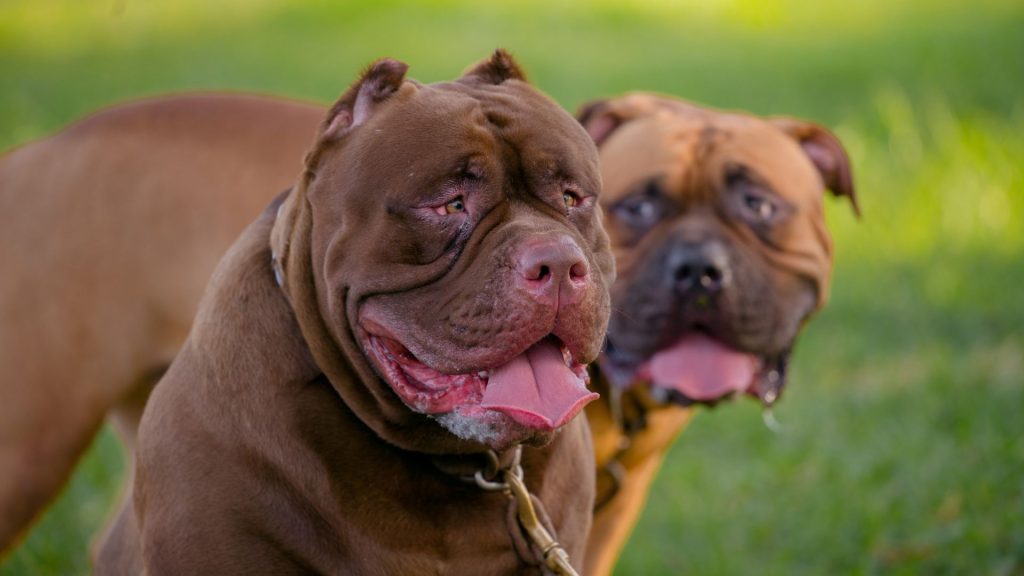
Recognizing Signs of Unhealthy Weight Gain
Being able to identify signs of unhealthy weight gain is key to managing your dog’s weight effectively. Look out for the following indicators:
- Difficulty feeling their ribs under their fur
- Loss of a visible waistline
- Decreased energy levels
- Difficulty breathing or excessive panting
- Reluctance to exercise or play
- Noticeable weight gain when monitored regularly
If you observe any of these signs, consult your vet for advice on adjusting your dog’s diet and exercise routine.
By following these general tips, you can help manage your dog’s weight, ensuring they lead a healthy, active, and happy life. Regular vet visits, a balanced diet, consistent exercise, and awareness of weight changes are all critical components of effective weight management for your furry friend.
Conclusion
Managing the weight of your dog, especially in breeds prone to obesity, is crucial for their overall health and longevity. Overweight dogs are at a higher risk for numerous health issues, including joint problems, heart disease, and diabetes. By understanding the specific needs of each breed and implementing proper diet and exercise routines, you can help prevent these problems and ensure your pet lives a long, healthy life.
Regular monitoring and maintenance of a healthy lifestyle for your pet are essential. Pay attention to their diet, portion sizes, and ensure they get enough physical activity daily. Regular vet check-ups are also important to catch any potential health issues early and keep your dog on the right track.
Despite the challenges of managing their weight, owning these lovable, chubby dog breeds brings immense joy and companionship. Their unique personalities and affectionate nature make them wonderful pets. By taking the necessary steps to keep them healthy, you can enjoy many happy years together, filled with love and playful moments.

Hello, I’m Donna Carter, the founder and writer behind PetFleck.com. My journey with dogs started years ago, and it’s been a passion that has only grown stronger over time. I’ve always been fascinated by the unique behaviors and characteristics of different dog breeds, and this curiosity has led me to dive deep into the world of canine studies.
My love for dogs is the driving force behind everything I do. I’ve dedicated countless hours to researching and understanding the nuances of dog care, training, and breed-specific traits. This dedication helps me create content that is not only informative but also genuinely helpful for fellow dog lovers and owners.
At PetFleck, I combine my extensive knowledge and hands-on experience with my passion for dogs to provide valuable insights and tips. Whether it’s exploring different breeds or offering practical advice on dog care, I aim to share knowledge that makes a real difference in the lives of dogs and their families.
I’m thrilled to share my love for dogs with you through my writing. I hope my articles inspire and inform, helping you to better understand and appreciate the incredible bond we share with our furry friends.
Thank you for visiting PetFleck.com, and I look forward to connecting with you through our shared love of dogs!

